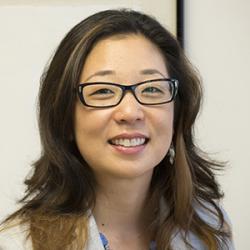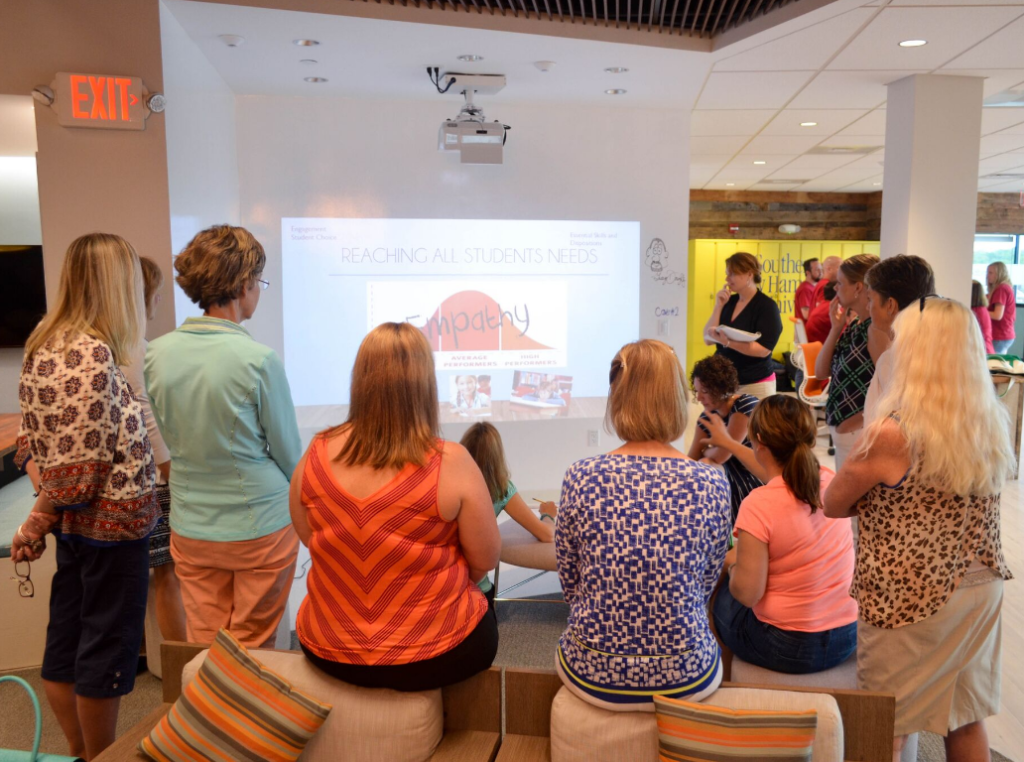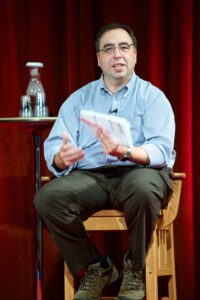
Higher education is in the midst of a transformation, and Michelle Weise is a key figure in making sense of it. Her keynote speech at the Distance Teaching & Learning Conference will help prepare educators for the changes to come, shedding light on “Disruptive Design for the Future of Online Learning.”

Weise will devote part of her talk to online competency-based education, which allows students to master skills at their own pace. She’ll explain why such education for nontraditional students is a significant development in our rapidly evolving knowledge economy.
“I’ll focus on the emergence of compelling new learning pathways that may not end in a two- or four-year degree,” says Weise, who leads the Sandbox Collaborative at Southern New Hampshire University. “It may be some micro-credential or a cluster of competencies that helps nontraditional students advance in their careers or maintain their jobs.”
Weise’s emphasis on “disruption” is appropriate for this year’s Distance Teaching & Learning Conference, hosted by the University of Wisconsin-Madison on July 25-27. The conference helps educators stay on top of emerging technologies and state-of-the-art teaching practices that improve outcomes for learners. It attracts college faculty and administrators, instructional designers, researchers, private-sector and government trainers, and vendors of new technologies and services. Participants can network with colleagues and learn evidence-based strategies from experts in the field.
A safe space for experimentation
Finding new ways of designing and delivering learning requires a change in thinking among educators. Weise will explain how she and her team approach that challenge at the Sandbox Collaborative, which is Southern New Hampshire University’s research and development lab of strategy and innovation. It strives to create a safe space for experimentation among faculty and staff, and its methods can serve as a model for others in higher education.

“There are many institutional forces that squash ideas, so we put a lot of hard work into building frameworks for cultivating innovation,” Weise says. “The point is to get faculty and staff into a different mindset.”
Part of the secret is a physical space geared to design thinking sessions. The Sandbox Collaborative has created an open environment with “caves” where people can write ideas all over the walls.
“We tried to design a space where people can let their guard down and be vulnerable,” Weise says. “We call it ‘play.’”
Even in the absence of a custom-designed space, Weise believes other institutions can adapt the Sandbox Collaborative’s methods.

“The easiest thing people can do is get out of a conference room or traditional meeting space,” she says. “Have faculty and staff stand and work around a whiteboard. Give everybody a marker and encourage them to participate.”
The students of the future
The ultimate goal of these exercises, Weise says, is to cultivate empathy for “the students of the future.” That will allow educators to create learning experiences that anticipate the impact of new technologies.
“We have to understand who these students are and why their needs might change in the future,” Weise says. “We must be creative and embrace the future openly, rather than being threatened by it.”
The 2017 Distance Teaching & Learning Conference features more than 170 sessions, including presentations by other national leaders in distance education. Along with Weise, the keynote speakers are University of Wisconsin-Madison Prof. Richard Davidson, who will discuss “Cultivating the Skill of Well-Being: Implications for Teaching and Learning”; and Nick Floro, CEO and learning architect of Sealworks Interactive Studios, who will explore “Designing eLearning: The Future Is Today.”
For more information about the Distance Teaching & Learning Conference, see here or contact director Les Howles, les.howles@wisc.edu, 608-265-9753; or conference manager Kimary Peterson, kimary.peterson@wisc.edu; 608-265-4159.